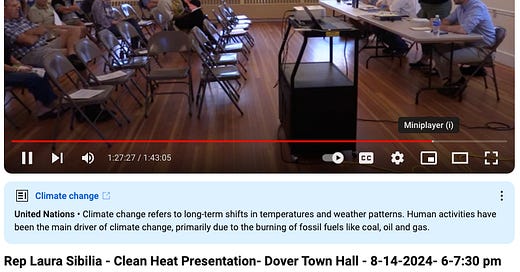What IS Your Cost Ceiling for the Clean Heat Carbon Tax, Rep. Sibilia?
A question every Vermonter should demand every candidate answer RIGHT NOW.
For going on half a decade, beginning with the lead up to passage of the Global Warming Solutions Act (GWSA) in 2020, the Democrat/Progressive majority’s Voldemort number – that which shall not be named – is what these greenhouse gas reduction policies will cost Vermonters. They have already spent mill…
Keep reading with a 7-day free trial
Subscribe to Behind the Lines: Rob Roper on Vermont Politics to keep reading this post and get 7 days of free access to the full post archives.



